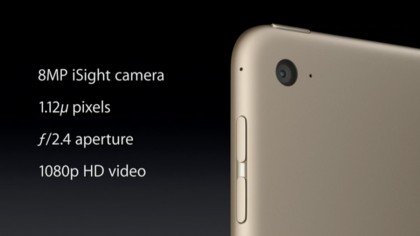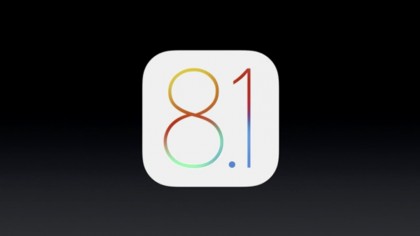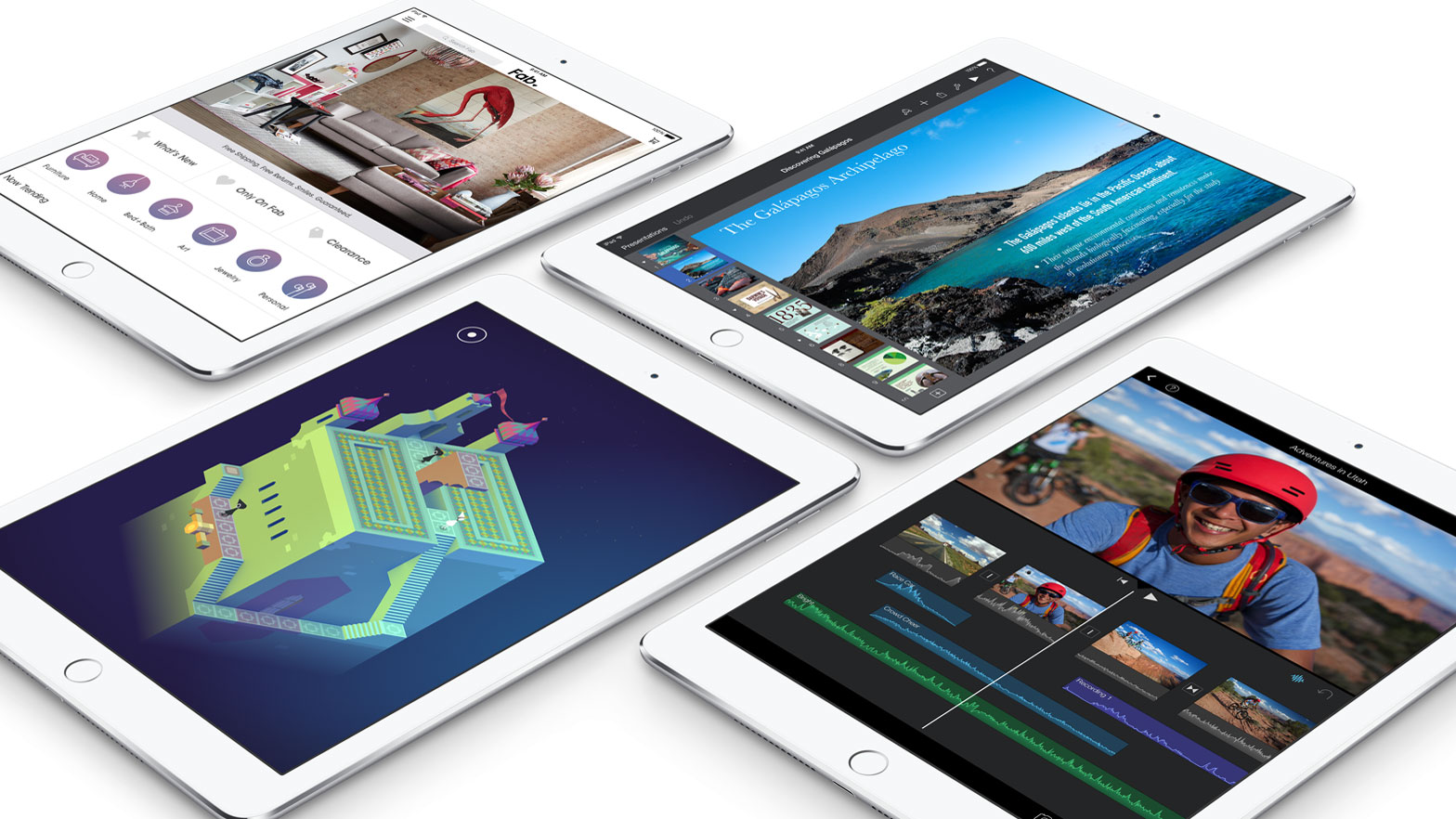10 things you need to know about the new iPads
6. Camera upgrades
The iPad Air 2 gets a bump as its camera is upgraded from a 5-megapixel lens to an 8-megapixel one. Around the front of the iPad Air 2, the forward-facing camera has been improved too, making your FaceTime and Skype calls just that little bit clearer.
Some of the advanced optical technology we saw in the iPhone 6 has arrived in the new iPads as well: you can create timelapse videos and panoramas if you really must use your iPad as a camera, but only the iPad Air 2 gets slow-motion video.

Again, the iPad mini 3 loses out: the camera specs are the same as they were last year. Perhaps Apple wants you to buy an iPhone 6 Plus instead.
7. iOS 8.1
iOS 8, we hardly knew ye. Apple is pushing ahead with iOS development in order to bring new features like HealthKit and Apple Pay up to speed as quickly as possible (you might say iOS 8 was rushed to meet the iPhone 6 launch date, we couldn't possibly comment). The Camera Roll interface is returning and iCloud has an improved photo library system, now in public beta.

iOS 8.1 also coincides with the launch of the aforementioned Apple Pay, though you won't be able to use your iPad in store like you can with the iPhone - as far as the tablets go, Apple Pay is only for online purchases for the time being, and it's limited to the US to begin with as well. Probably of more interest right now are the fixes Apple has applied to the iOS 8 battery drain and Wi-Fi issues and the full compatibility it provides with OS X Yosemite, now in the wild.
8. Release date
You have to admire the efficiency of Apple's production lines no matter what you think of the actual hardware it puts out. Despite having to shift millions of iPhone 6 and 6 Plus handsets in recent weeks, it still has warehouses stacked full of iPads ready to go.
You can get your hands on both of these tablets from the Apple website or a high street retail store from tomorrow (October 17). For now there's no sign of the super-sized 12.9-inch iPad Air Pro, but we think it's likely to appear early next year.
Sign up for breaking news, reviews, opinion, top tech deals, and more.
9. Price
No real surprises here as Apple is closely following the prices set by the previous year's models: the iPad mini 3 can be yours for as little as £319 (US$399, AU$499) for the basic model and as much as £579 (US$729, AU$899) if you want that full 128GB of storage and data connectivity.
The iPad Air 2 also follows the lead set by its immediate predecessor, with prices ranging from £399 (US$499, AU$619) at the lowest level to £659 (US$829, AU$1,019) at the highest. New this time around is a gold option for both models if you need that extra bit of bling.
10. What's missing?
So what didn't we see at Apple's iPad launch event in Cupertino? Well, there's no introduction of NFC (Near Field Communication) technology, as there was with the iPhones - presumably that's one of the reasons why Apple Pay won't work while you're out and about with your tablet.

Nor did we see the rumoured introduction of a special landscape mode for the iPads where multiple apps can be run alongside each other - it seems we'll have to wait before Apple lets us run one app next to another.
In terms of thinness, lightness and performance, the iPad Air 2 got a significant upgrade (though an improved display would've been welcome too); aside from Touch ID, the iPad mini 3 isn't much of an upgrade at all, and it seems Apple is happy to let it be superseded by the iPhone 6 Plus.

Dave is a freelance tech journalist who has been writing about gadgets, apps and the web for more than two decades. Based out of Stockport, England, on TechRadar you'll find him covering news, features and reviews, particularly for phones, tablets and wearables. Working to ensure our breaking news coverage is the best in the business over weekends, David also has bylines at Gizmodo, T3, PopSci and a few other places besides, as well as being many years editing the likes of PC Explorer and The Hardware Handbook.